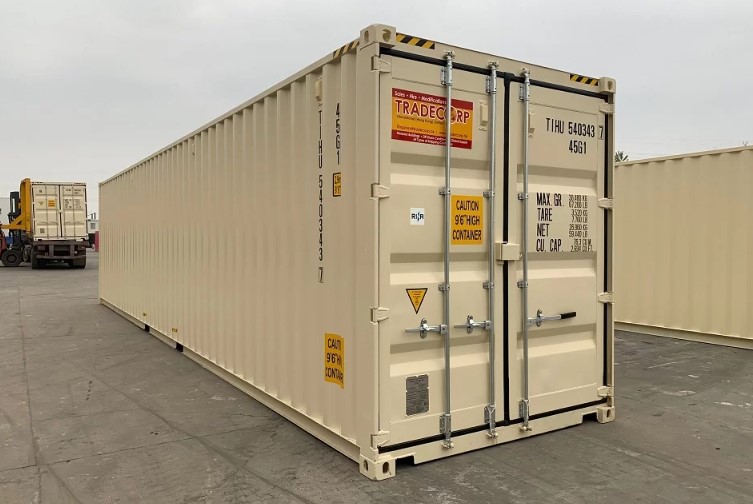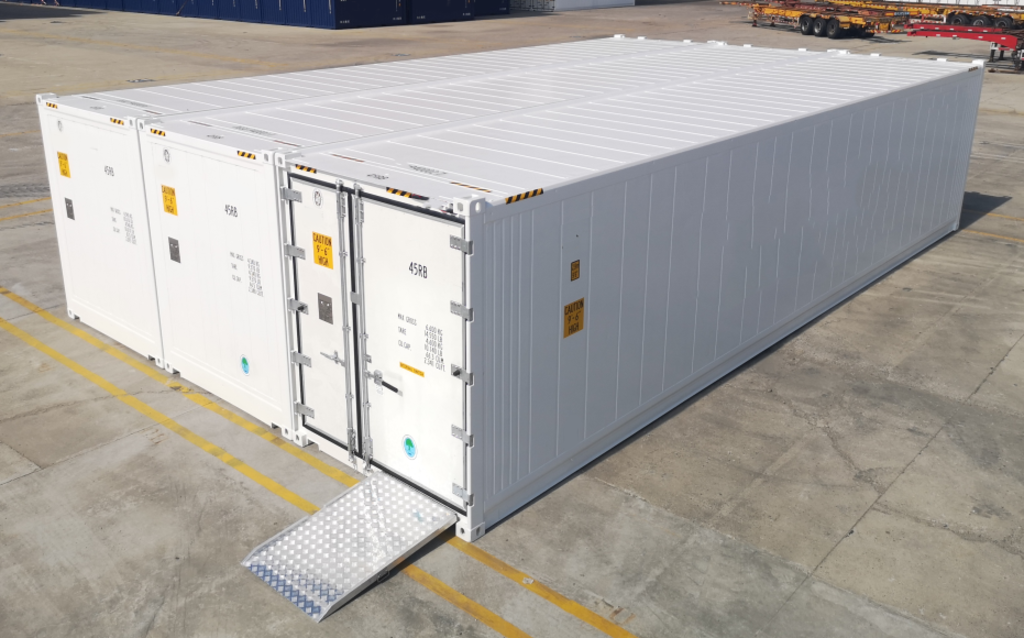When you think about a faster loading and unloading process, a shipping container ramp must not be left out. It is an essential tool for streamlining logistics operations.
Whether you are working in a warehouse, freight yard, construction site, or temporary storage facility, a high-quality ramp can dramatically improve productivity and safety.
Read this article to get a clear breakdown of the benefits of a shipping container ramp for loading and unloading operations.
Contents
Benefits of a Shipping Container Ramp for Loading & Unloading

1. Faster Loading & Unloading
A container ramp creates a smooth, drive-on transition between ground level and the container floor.
This eliminates the need for manual lifting or makeshift solutions, allowing forklifts, pallet jacks, and carts to move in and out of the container quickly, resulting in higher throughput and reduced turnaround time.
2. Improved Worker Safety
Without a proper ramp, workers may attempt to load goods manually, use unsafe slopes, or navigate uneven surfaces. All of which increase the risk of injury.
Therefore, you need a container ramp that provides a non-slip surface, secure side edges, and a proper incline for safe equipment operation.
3. Increased Equipment Efficiency
Forklifts and pallet jacks are able to operate on stable gradients.
However, a purpose-built ramp prevents damage to equipment from improper lifting angles. It also allows consistent load handling and reduces strain on hydraulics and wheels. This means fewer maintenance issues and longer equipment lifespan.
4. Versatility Across Different Sites
Container ramps are portable and easy to position, making them ideal for temporary storage yards, construction sites, distribution centers, and seasonal operations. Many models are designed for quick setup, so you can move them wherever they are needed most.
5. Supports Heavy Loads
Heavy-duty ramps can handle substantial weight capacities, often several tons. Ramps ensure safe and reliable handling of even the heaviest shipments. This makes them suitable for industrial-grade forklifts, palletized goods, and machinery.
6. Eliminates Improvised or Unsafe Loading Solutions
Businesses sometimes resort to wood planks, uneven dirt mounds, or tilted platforms to bridge the gap to a container. They are usually unsafe and unreliable. A shipping container ramp offers a durable, purpose-built, and compliant solution that removes risk from improvised setups.
7. Greater Operational Flexibility
With a ramp in place, you can load or unload from containers placed at ground level without needing a dock or special infrastructure.
This is ideal for operations that don’t have loading docks, use mobile storage, and need flexible placement for containers.
Container Types Compatible With Shipping Container Ramps

Not all shipping container ramps can accommodate a ramp. Below are the container types that typically accommodate a ramp:
1. Standard Dry Containers
The standard dry containers are the most common containers in logistics and are fully compatible with ramps. They commonly come in sizes 20’ and 40’.
Standard dry containers have a consistent ground clearance, typically around 1,150-1,300 mm.
This height is uniform worldwide and can match ramps safely and efficiently to provide a smooth, predictable transition into the container.
2. High-Cube Containers
A high cube container is compatible with a shipping container ramp for many of the same reasons as a standard dry container, with a few advantages unique to its taller design.
High cube containers offer an extra 1’ vertical clearance. This will enable easier entry for forklifts with high masts, safer loading of bulky, tall cargo, and better maneuverability inside the container.
3. Refrigerated / Reefer Containers
Reefer containers follow the same ISO specifications for rear door width, door height, door frame structure, and threshold design as standard containers. Therefore, they can fit securely against the doorway, just as they would on a standard or high-cube container.
Moreover, despite being insulated, reefer containers still can maintain the same floor height from the ground as other shipping containers (typically around 1,150–1,300 mm) to ensure safe and smooth transitions.
4. Open-Top Containers
Used for loading oversized cargo from the top, but can also be loaded from the back, making open-top containers compatible with shipping container ramps. This is because they maintain standard ISO doorways, standard floor height, forklift-ready flooring, and strong rear framing.
Moreover, even though they are designed for top-loading, their rear structure makes them fully compatible with ramp-assisted ground-level loading.
5. Double-Door Containers (Tunnel)
One major advantage of tunnel containers is that you can use a ramp on either door. This allows drive-through loading, more efficient cargo handling, easy unloading from the opposite side, and faster turnaround times.
Moreover, since tunnel containers have two sets of doors, each end is built with reinforced door posts, strong threshold beams, and high load tolerance for rolling equipment. With those features, a ramp can seat securely on either end without damaging the container.
6. Pallet-Wide Containers
Pallet-wide containers are used mainly in Europe to maximize pallet capacity. Their widened interior but standard exterior door and frame allow ramp use.
Just like a standard container, it still follows the same ISO-standard structural features that ramps are designed to connect to. Therefore, the ramp fits securely and safely at the entrance.
Moreover, pallet-wide containers are often dropped at distribution hubs, cross-docking locations, events, and temporary storage sites that usually do not have a loading dock. In this condition, a ramp becomes the safest and most efficient ground-level loading solution.
7. Side-Opening Containers
A side-opening container is compatible with a shipping container ramp for the same structural reasons as standard containers, plus it provides extra loading flexibility if paired with a ramp.
Even though these containers open along the side, they still include standard ISO rear cargo doors with the same door width and height, the same steel threshold, and the same structural frame as a dry container. A shipping container ramp fits perfectly at the rear entrance, just like with any standard or high cube container.
Conclusion
Buy or rent shipping containers from Tradecorp, a reliable container sales, purchase, rental, and modification service company.
Tradecorp provides modification and custom shipping container services by adding racking systems, windows, doors, walls, and roof insulation.
Our experienced staff is ready to help you arrange the shipping of your container to your requested location. Fill out our quote form to buy or rent from us!

